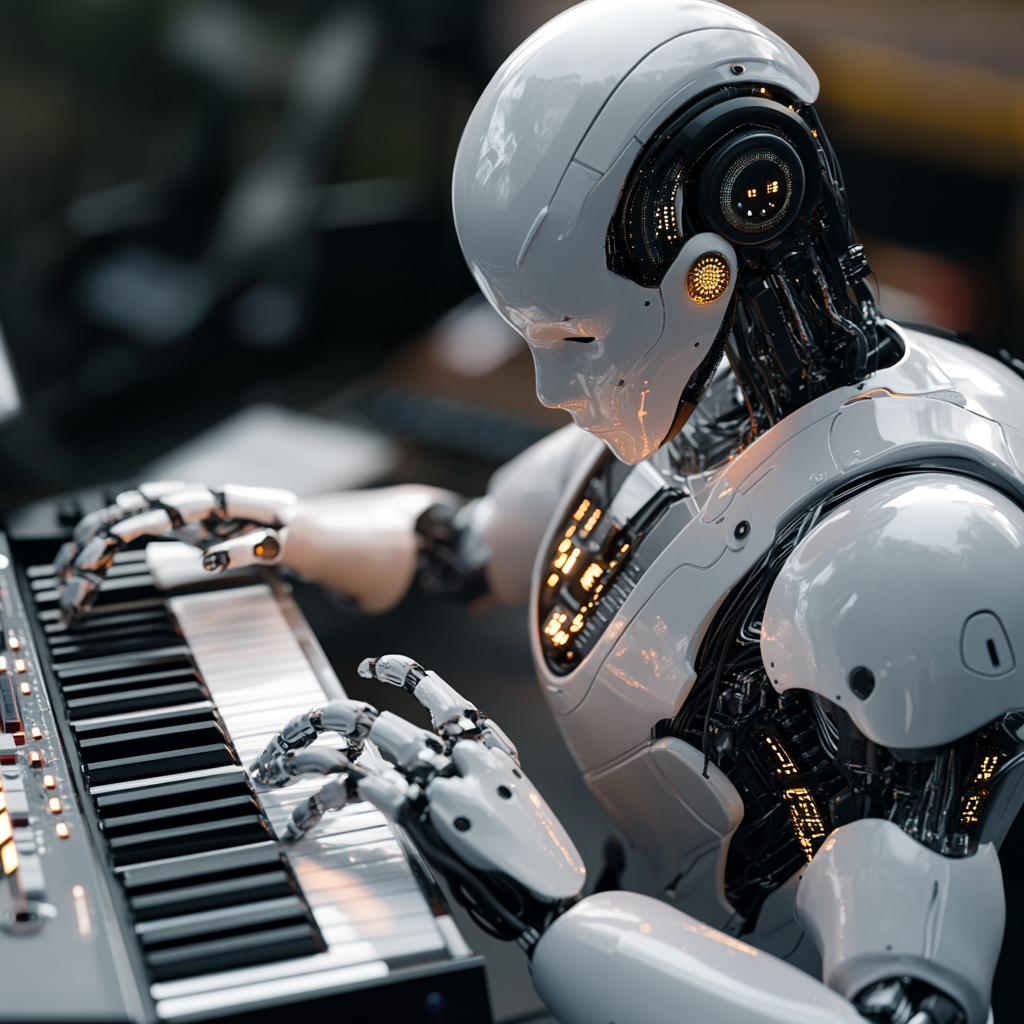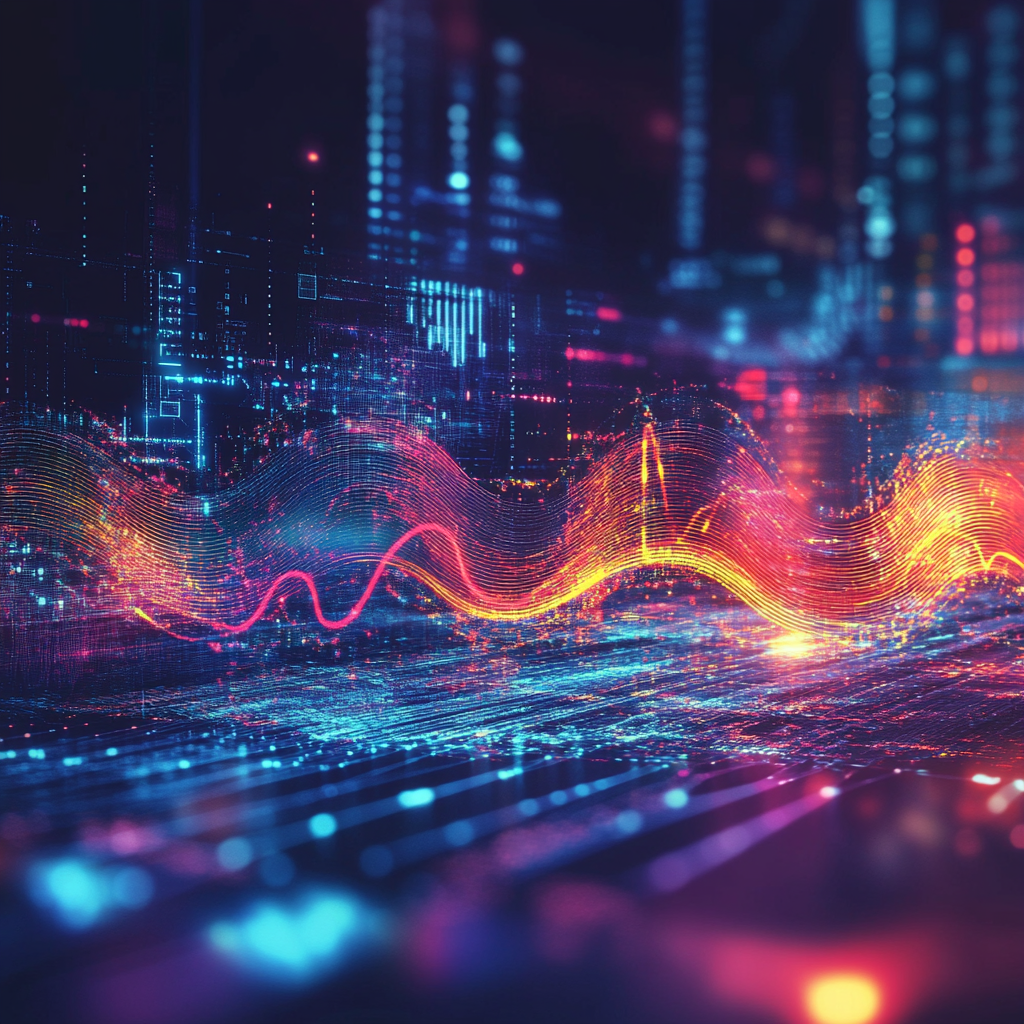

As the lines between human creativity and artificial intelligence blur, the music industry faces a new wave of piracy driven by AI and music. AI-generated music tracks, churned out en masse by automated bots, have startled the sector, enabling schemes that claim millions in unentitled royalties. This sophisticated form of music piracy not only jeopardises the financial stability of genuine artists but also erodes trust in digital platforms like Apple Music, which are designed to support creative expression. Incidents involving music producers exploiting thousands of bots to stream AI-generated music highlight the urgent need for improved detection mechanisms and stricter regulations. The rise of AI music tools complicates matters, making it challenging for platforms to distinguish between legitimate and fraudulent activities. As Universal Music Group and others adapt to this evolving landscape, it’s crucial to protect the integrity of artistic ownership. As AI advances, our strategies for combating its misuse must evolve, ensuring that creativity and fair compensation remain central to the digital music revolution, including royalty-free music and the future of creating music.
The rise of AI technology in music production brings remarkable convenience and innovation but also presents complex ethical dilemmas. AI music tools can generate music autonomously, expediting the creative process and allowing music creators to explore unlimited variations and democratise the production landscape. However, this convenience raises concerns about originality, authorship, and the potential devaluation of human talent. AI-generated songs can flood the market, challenging the authenticity and uniqueness that define human creativity and diverse music styles. Additionally, the risk of plagiarism and intellectual property theft grows as it becomes harder to identify the true origin of AI-generated music. The issues of misappropriation, as seen in the rise of AI-driven royalty scams and vocal theft cases, highlight the urgent need for stringent ethical standards and transparent governance around AI technology. Ultimately, while AI promises to transform how we create music, a balanced approach is essential to protect artistic integrity and ensure fair compensation, fostering a sustainable coexistence between human artistry and technological advancement.
As AI-generated music continues to permeate the industry, the question of ownership becomes increasingly contentious. Unlike traditional music production, which has clear attribution to composers and performers, tracks created by AI tools exist in a nebulous grey area where the lines of authorship are blurred. This ambiguity poses significant legal and ethical challenges: who truly owns the rights to new music algorithms produce? Existing songs face similar dilemmas as traditional intellectual property laws struggle to keep pace with rapid advancements in artificial intelligence, leaving creators, tech companies, and music platforms in a complex tug-of-war over rights and royalties. The risks of exploitation and unfair distribution of earnings are alarmingly high, as evidenced by cases of AI-driven royalty scams and vocal theft. To navigate this evolving landscape, there is an urgent need for updated legal frameworks that clearly define ownership and ensure fair compensation, safeguarding all parties’ contributions in the creative process.
The rise of AI-powered music generators has ignited a crucial debate about the line between inspiration and plagiarism. With algorithms capable of analysing extensive music libraries and creating new songs that closely mimic existing styles, the distinction between drawing inspiration from someone’s creative work and outright copying becomes increasingly blurred. AI’s influence raises severe ethical concerns: it can inadvertently replicate melodies, harmonies, or even original lyrics, prompting questions about originality and intellectual property. Record companies and major labels are challenged by the difficulty in tracing the origins and influences of AI-generated music, making it hard to determine if a piece is truly original or simply an AI-created copycat. As tech giants and major streaming platforms navigate these challenges, there is an urgent need for new guidelines and strong ethical standards to ensure that innovation does not compromise artistic integrity.
In a world where technology and automation increasingly dominate the music industry, the human touch remains an irreplaceable element that upholds authenticity and emotional depth in music. While AI offers efficiency and endless creativity through data-driven compositions, it lacks the intrinsic human qualities of emotion, experience, and imperfection that make music relatable and impactful. Authenticity in music is characterised by the artist’s personal narratives, cultural contexts, and emotional expressions, which resonate deeply with listeners on a fundamental level. As AI-generated tracks proliferate, there is a growing concern that the essence of human artistry may be diluted, reducing music to mere algorithmic outputs. To preserve the richness and diversity of musical expression, it is crucial to balance the benefits of AI with the irreplaceable value of human creativity, ensuring that technology enhances rather than eclipses the authentic human experience in music.
As AI continues to make inroads into the music industry, a critical question arises: can machines truly replace human artistry in entertainment? While AI offers remarkable efficiencies and the ability to generate endless permutations of music, it fundamentally lacks the human touch that infuses art with authenticity and emotional depth. Human creativity is rooted in personal experience, emotional expression, and cultural context—elements that AI, no matter how sophisticated, cannot genuinely replicate. As discussed, AI has the potential to blur the lines between inspiration and plagiarism, challenge traditional notions of authorship, and inundate the market with algorithm-driven compositions. Therefore, while AI is a powerful tool that can augment the creative process and democratise music production, it cannot entirely supplant the unique and irreplaceable contributions that human artists bring to the table. The future of entertainment lies in harmoniously blending technological advancements with the profound depths of human creativity.
In an industry increasingly dominated by AI-generated music, artists are waging a battle against a new form of intellectual property theft: vocal cloning. The rise of sophisticated AI algorithms capable of replicating artists’ unique vocal characteristics has led to instances of vocal robbery, where an artist’s voice is used without consent to create new tracks. This infringes on the artist’s rights and threatens their brand and artistic integrity. In response, many artists are lobbying for stronger legal protections and more precise guidelines addressing AI’s ethical use in music production. They advocate for transparency in how AI-generated content is created and seek mechanisms to ensure fair compensation for using their vocal likenesses. This fight against vocal theft underscores the broader need for a balanced approach to AI in the music industry—one that safeguards the rights and contributions of human creators while embracing technological innovation.
As artificial intelligence continues to reshape the music industry, artists face an increasingly complex legal landscape that demands vigilance and education. The traditional notions of intellectual property are being upended by AI’s unprecedented capability to generate and manipulate music. This technological advancement challenges artists to understand the intricacies of copyright law, particularly when it comes to ownership, royalties, and the ethical use of AI-generated content. Cases of vocal theft and royalty scams illustrate the potential risks and the urgent need for updated legal frameworks that protect artists’ rights. To navigate this new terrain, artists must stay informed about the latest legal developments, advocate for clear and robust legislation, and consider seeking legal counsel to safeguard their creative contributions. Balancing the benefits of AI with the preservation of artistic integrity hinges on a thorough understanding of one’s rights and proactive measures to defend them.
While copyright infringement represents a significant concern, the ethical implications of AI in the music industry extend far beyond it. The proliferation of AI algorithms capable of generating music challenges the very essence of creativity and innovation. Issues such as the loss of human touch, the potential homogenisation of musical styles, and the exploitation of artists’ unique voices without consent are emerging as critical ethical dilemmas. Furthermore, the transparency and accountability of AI-generated content remain contentious, raising questions about authenticity and artistic ownership. As AI advances, the music industry must engage in a broader ethical discourse to navigate these complex challenges, ensuring that technology enhances rather than undermines the rich tapestry of human creativity. This involves fostering an environment that respects both technological innovation and the irreplaceable value of human artistry, ensuring that AI serves as a tool for empowerment rather than a mechanism for exploitation.

This website uses cookies to improve your experience. Choose what you're happy with.
Required for the site to function and can't be switched off.
Help us improve the website. Turn on if you agree.
Used for ads and personalisation. Turn on if you agree.
This website uses cookies to improve your experience. Choose what you're happy with.
Required for the site to function and can't be switched off.
Help us improve the website. Turn on if you agree.
Used for ads and personalisation. Turn on if you agree.